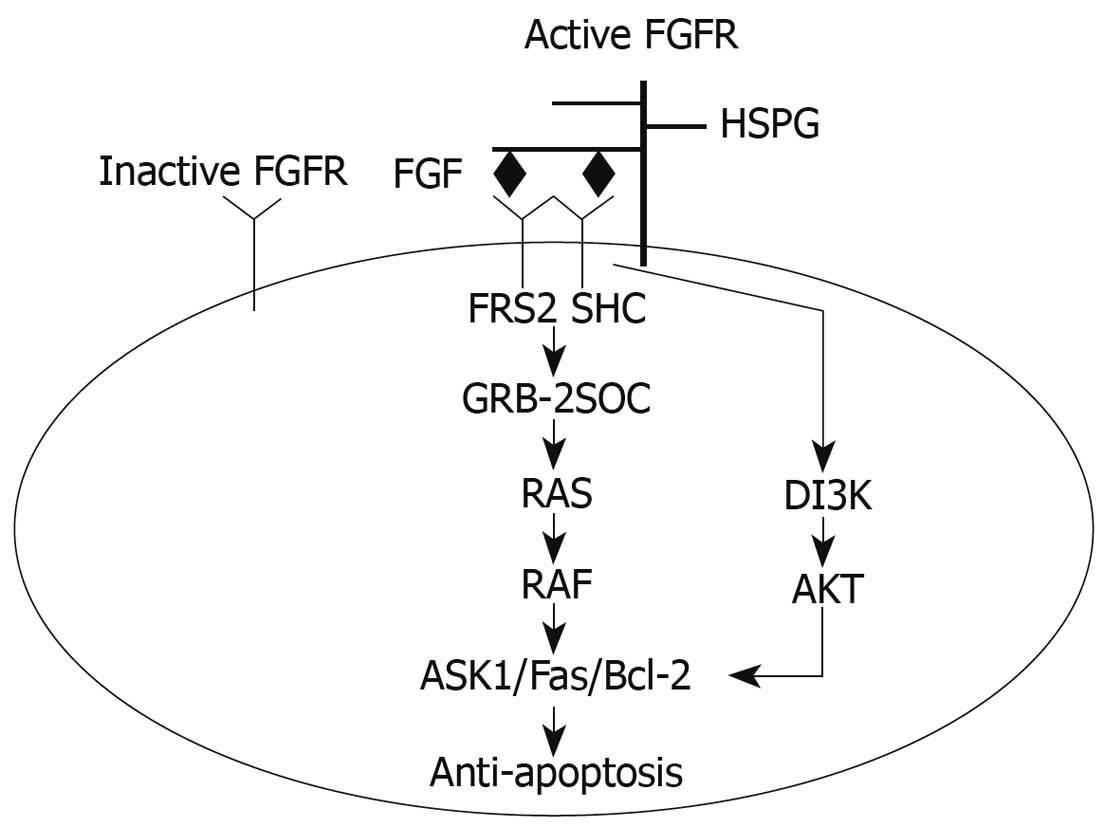Copyright
©2010 Baishideng.
World J Gastroenterol. Jan 21, 2010; 16(3): 306-311
Published online Jan 21, 2010. doi: 10.3748/wjg.v16.i3.306
Published online Jan 21, 2010. doi: 10.3748/wjg.v16.i3.306
Figure 1 Heparan sulphate proteoglycan (HSPG) and fibroblast growth factor (FGF)-induced signal transduction.
Basic FGF (bFGF) enhances tumor progression by protecting tumor cells from apoptosis. Cell surface HSPGs could act as a co-receptor for formation of a bFGF high-affinity receptor complex. The alteration of cell surface HSPGs resulting from heparanase might down-regulate HSPG-mediated bFGF-induced signal pathway, resulting in apoptosis of tumor cells.
- Citation: Dong S, Wu XZ. Heparanase and hepatocellular carcinoma: Promoter or inhibitor? World J Gastroenterol 2010; 16(3): 306-311
- URL: https://www.wjgnet.com/1007-9327/full/v16/i3/306.htm
- DOI: https://dx.doi.org/10.3748/wjg.v16.i3.306









